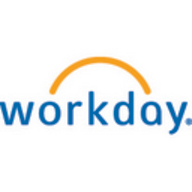

Find out what your peers are saying about Snowflake Computing, Microsoft, Teradata and others in Cloud Data Warehouse.
| Product | Market Share (%) |
|---|---|
| Databricks | 10.0% |
| Snowflake | 15.9% |
| Teradata | 8.4% |
| Other | 65.7% |
| Product | Market Share (%) |
|---|---|
| Workday Prism Analytics | 1.2% |
| Microsoft Power BI | 8.9% |
| Tableau Enterprise | 6.2% |
| Other | 83.7% |


| Company Size | Count |
|---|---|
| Small Business | 26 |
| Midsize Enterprise | 12 |
| Large Enterprise | 56 |
Databricks offers a scalable, versatile platform that integrates seamlessly with Spark and multiple languages, supporting data engineering, machine learning, and analytics in a unified environment.
Databricks stands out for its scalability, ease of use, and powerful integration with Spark, multiple languages, and leading cloud services like Azure and AWS. It provides tools such as the Notebook for collaboration, Delta Lake for efficient data management, and Unity Catalog for data governance. While enhancing data engineering and machine learning workflows, it faces challenges in visualization and third-party integration, with pricing and user interface navigation being common concerns. Despite needing improvements in connectivity and documentation, it remains popular for tasks like real-time processing and data pipeline management.
What features make Databricks unique?
What benefits can users expect from Databricks?
In the tech industry, Databricks empowers teams to perform comprehensive data analytics, enabling them to conduct extensive ETL operations, run predictive modeling, and prepare data for SparkML. In retail, it supports real-time data processing and batch streaming, aiding in better decision-making. Enterprises across sectors leverage its capabilities for creating secure APIs and managing data lakes effectively.
With Workday Prism Analytics, you can bring data in at scale from any source and prepare, analyze, and securely share it with your organization. The result? You gain all the insights you need to drive better business outcomes.
We monitor all Cloud Data Warehouse reviews to prevent fraudulent reviews and keep review quality high. We do not post reviews by company employees or direct competitors. We validate each review for authenticity via cross-reference with LinkedIn, and personal follow-up with the reviewer when necessary.